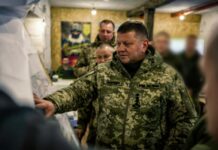“New Newspaper” published a lot of material about the most influential people who “took possession of the Crimean assets, put their people in deputy and ministerial chairs, multiplied and continue to multiply their fortunes, sometimes engaging in battle with each other.”
In particular, on the coast near the tracts of Batiliman and Ayazma, not far from the village of Laspi, the so-called “Kovalchuk’s dacha” is being built.
Putin’s friend Yuri Kovalchuk is the main beneficiary of the Rossiya bank, with which the structures that now own the estate are associated. Until 2007, the Cape Aya boarding house was located here; in 2007, its land was bought by the family of the former President of Ukraine Viktor Yanukovych. After 2014, the Crimean estate of Yanukovych acquired a new owner – St. Petersburg LLC Bereg.
The land under the estate in Batiliman, 3.8 hectares by the sea, went to the Bereg company at a bargain price – it is rented from the government of Sevastopol for 105 thousand rubles a month.
Kovalchuk was one of the first among Russian multibillionaires to start working in Crimea after the occupation, having established the Rossiya bank on the peninsula.
In December 2020, Yuzhny Project LLC (a subsidiary of Rossiya Bank) bought the famous Massandra winery. In December 2017, Yuzhny Project acquired another Crimean winery, Novy Svet, specializing in the production of champagne. According to Novaya Gazeta sources, Kovalchuk’s structures de facto also control the well-known Sevastopol Inkerman winery.
In addition to winemaking, Kovalchuk’s structures are engaged in health insurance in Crimea. The largest insurance company on the Krymmedstrakh peninsula is controlled by two subsidiaries of the Rossiya bank – SKM Holding LLC and Garant-Service LLC.
Another friend of Putin, Arkady Rotenberg, was building a bridge across the Kerch Strait.
The Crimean “Rotenberg’s dacha” is located very close to the “Kovalchuk’s dacha” – on the opposite side of the Laspinskaya Bay, on Cape Sarych. The territory of the palace on Sarych is significantly larger than that of the residence in Batiliman: 12.5 hectares against 3.8 hectares. At the same time, the estate itself occupies only 3.7 hectares, but the companies “Magnit-D” and “Sarych” associated with Rotenberg own both the relict forest surrounding it and a whole hectare of beach.
The companies associated with Rotenberg got possession of the health resorts in the Crimea – the sanatoriums “Mishor”, “Dyulber” and “Ai-Petri”. Another health resort on which a company associated with Rotenberg made money is the Artek children’s camp.
In addition, according to Project, Rotenberg became the de facto owner of Krymtelecom, which inherited the assets of mobile operators Ukrtelecom and Kyivstar during the “nationalization” of Ukrainian enterprises.
Rotenberg is associated with the Krymtechnologii company, which owns 87 land plots in Yalta, Alushta, Evpatoria and Simferopol (total area 20 hectares), as well as more than 300 individual buildings and premises with a total area of 77 thousand square meters.
The total amount of “Crimean” government contracts received by companies associated with Rotenberg is about 300 billion rubles.
The so-called “head of Crimea” Sergei Aksenov has built a personal financial and administrative empire in Crimea, the newspaper writes.
His father Valery Aksenov is the deputy chairman of the Committee for Construction, Transport and Fuel and Energy Complex of the State Council of Crimea. Sister-in-law Evgenia Dobrynya heads the “golden” committee of the State Council on land and property relations, and her common-law husband Andrei Dedyukhin is the head of the fisheries department of the republican “ministry of agriculture”. Aksenov’s mother-in-law Lyudmila Dobrynya is a member of the Public Chamber of Crimea.
The companies of Aksenov’s relatives are mainly engaged in real estate.
The Monolit group of companies includes Malva Kom LLC, founded in 2014 by Sergei Aksenov’s mother-in-law Lyudmila Dobrynya and his advisor Svetlana Babiy. Dobrynya is also the main beneficiary of Eskada LLC, which manages rented real estate. In addition, in 2015, she co-founded the Specialized City Ritual Service funeral company, which earned 7 million rubles in four years.
The wife of the “head of Crimea” Elena Aksenova is a co-founder of the Simferopol companies “Hals” and “Stealth-Yug”, which are engaged in the lease of real estate.
Aksenov’s daughter, Kristina Manusova, owns Parus LLC, which also leases real estate. Her husband, Daniil Manusov, has owned Premium Trade LLC since 2019, which is engaged in the trade of food and tobacco.
The 23-year-old son of the head of the occupation power of Crimea, Oleg Aksenov, has been a co-owner of Moro Mare LLC since 2018, which owns the House of the merchant Chirakhov, one of the most famous historical buildings in Simferopol.
The speaker of the “Crimean parliament” Vladimir Konstantinov came to power as a man already wealthy. In 2013, his fortune was estimated at $ 118.4 million. Konstantinov earned his money in the construction business – he headed the companies “Consol” and “Ukrrosbud”. “Console” and this
of the day – “the general developer of the Crimea.”
Formally, Konstantinov retired from business in 2010 – before becoming the chairman of the Verkhovna Rada of the republic. But the de facto construction companies remained under the control of his family. Thus, according to Interfax-Spark, the daughter of the speaker of the Crimean “parliament” Yekaterina Konstantinova is a co-owner of seven companies associated with “Consol”.
The son of the “speaker” Oleg Konstantinov is also a director and co-founder of five companies associated with “Consol”. Two of them, working in the health and fitness sector, are unprofitable. But the Crimean Aerated Concrete Plant, which Konstantinov Jr. owns together with the people of the “Deputy Prime Minister” of Crimea Yevgeny Kabanov, brings a good profit: since 2015 – 189.6 million rubles.
Vladimir Konstantinov himself from 2014 to 2019, according to official declarations, earned 146.8 million rubles.
Konstantinov also brought his colleagues in the construction business and the Party of Regions to power.
“Vice Prime Minister” of Crimea Yevgeny Kabanov, together with Konstantinov’s “Consol”, took part in the development of the Primorsky Park of Yalta. In total, according to the calculations of the Crimean media, Kabanov’s structures can earn up to 3.6 billion rubles at the Primorsky Park residential complex.
The Interstroy company, which Kabanov owned before coming to power in 2018 (and then transferred it to his relatives and business partners), built up the Admiral’s Beach in Sevastopol and erected the Top of Success residential complex in the complex protected zone of the UNESCO World Heritage Site of Chersonesos Tauriches. From 2015 to 2019, the structures of Interstroy received 333.6 million rubles of net profit. Kabanov’s buildings have repeatedly provoked protests from residents.
At the end of 2020, information appeared that Kabanov could become a defendant in a criminal case due to the conflict around the Omega-2 residential complex in Sevastopol.
Former Minister of Defense of Ukraine Pavel Lebedev found himself in the business community of Crimea long before the occupation of the peninsula. In 1999-2002. he was the CFO of Crimean Titanium, a chemical enterprise that until 2019 was owned by Ukrainian oligarch Dmitry Firtash. And by 2012 he became the owner of Inter Car Group, which included the Crimean group of companies “Parangon”, which was engaged in construction.
Lebedev fled from Kiev at the same time as Yanukovych – on February 21, 2014. In Sevastopol, he took up construction.
Lebedev’s main development assets are the Parangon group of companies and companies associated with the Aquamarine hotel in Sevastopol, on the territory of which the city’s only water park operates. Lebedev is also the beneficiary of the Alliance agricultural company, which grows grain.
The publication notes that Lebedev’s projects often cause dissatisfaction among Sevastopol residents.
Novaya Gazeta’s interlocutors call Lebedev a man with extensive connections at the federal level. He is also a board member of the Russian Union of Industrialists and Entrepreneurs.
For the first time, Novaya Gazeta presented its list of “owners of Crimea” in January 2018. Then it had 12 surnames. However, over time, it became clear: the circle of those who really claim to own the peninsula is narrowing, the newspaper notes.








